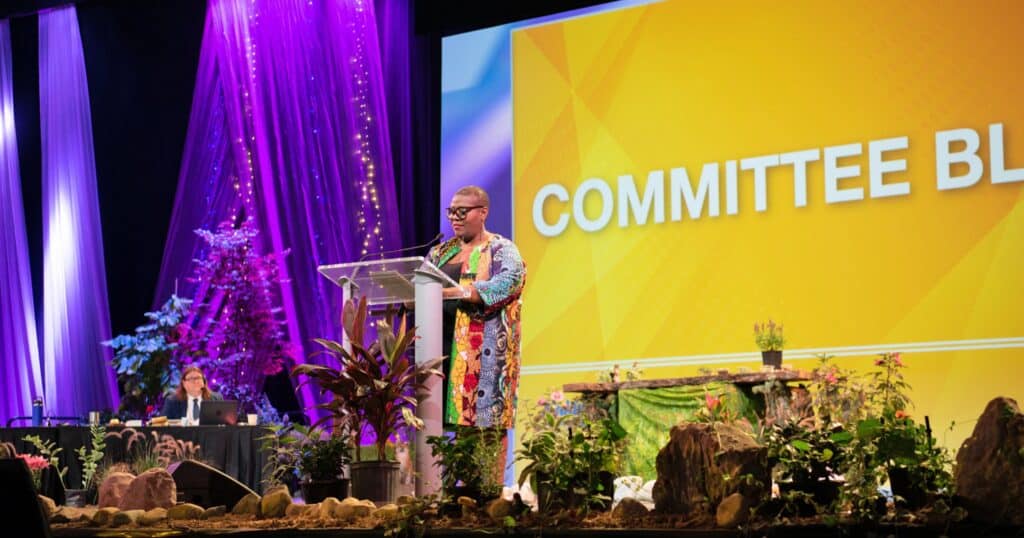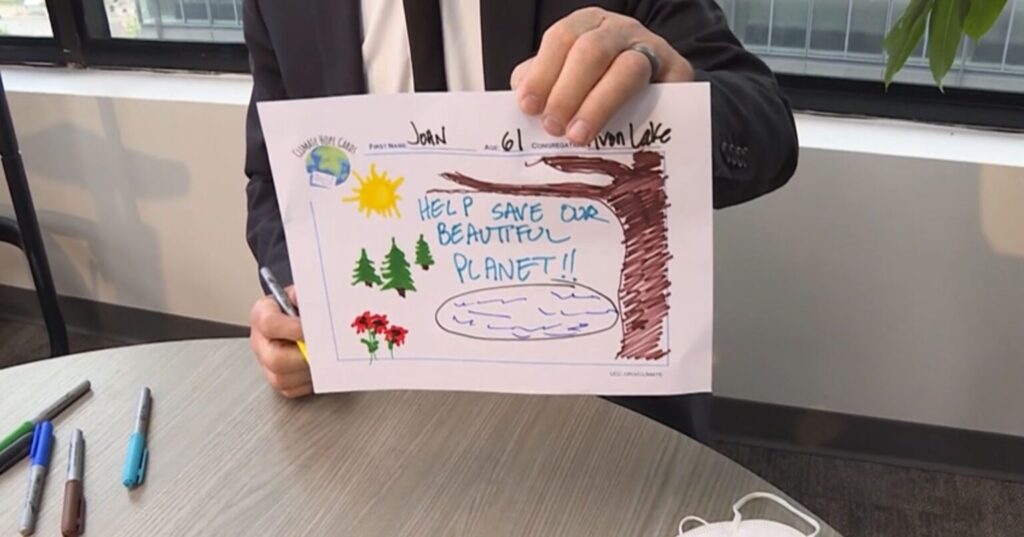Commentary: First Give Thanks, Then Let’s Change the World
Thanksgiving is really a religious holiday — maybe the best kind of religious holiday. Not an over-the-top commercialized day, not a dress-in-your-best-and-show-off day. If we slow down and postpone the shopping, hopefully we will remember that it is a day to give thanks.
Following the lead of those first settlers, we can express our gratitude to God for the abundance given to us. We dwell in a land overflowing with milk and honey or, in today’s language, we live in a country where the size of our economic pie continues to expand and the stock market climbs ever upward. But, wait — we all know there is something wrong with this picture.
In a very rich country with stores overflowing with every imaginable thing, why are so very many of us suffering from inadequate income and too few resources? Or, at the very least, why do we worry so much about our economic futures?
Over the last 40 years, while the size of the economic pie, per person, nearly doubled, most of the gains went to already wealthy households. Between 1973 and 2012 among the bottom 90% of households (this would include most of us), annual income adjusted for inflation actually fell by over $4,500. Among the top 1/100th of 1%, some 16,000 households with incomes over $10 million, average annual income rose from about $4.5 million in 1973 to $30.8 million in 2012, an additional $26 million each year! The share of the national income received by this tiny group is larger than any time since 1913 when the government began keeping records on this.
This trend is not the inevitable consequence of globalization, technological change, an aging population, or anything else. Growing inequality – the rich getting richer, the poor getting poorer, and the middle disappearing – is the direct result of policy decisions made by policymakers in Washington, DC, and state legislatures. Starting around 1980, changes in public policies have brought about these results. High levels of unemployment, attacks on unions, the failure to raise the minimum wage, “free trade” agreements that harm workers around the world and benefit multinational corporations, deregulation, privatization, a reduced role for government, tax cuts on corporations and very wealthy households, the erosion of the social safety net, and – maybe most of all – the influence of money on politics have all played a role. These policies first reversed the post-World War II era of shrinking inequality then they plunged the nation into a chasm of widening inequality where a very few have spectacular wealth while the rest of us live in the midst of insecurity and even misery.
It does not have to be this way. May our thanks-giving be a first step toward reversing this trend. We are grateful for all we have, even a meager amount. But we know that our society will be strong only when every person is thriving economically, when each one has what they need. Let us summon our courage, claim our power, and get involved in one or several of the many efforts seeking to bring change. Hopefully it is not too late.
Edith Rasell is Minister for Economic Justice for the UCC.
View this and other columns on the UCC’s Witness for Justice page.
Donate to support Justice and Witness Ministries.
Click here to download the bulletin insert.
Related News
‘On My Mind Today’ shares thoughts and concerns from UCC’s Karen Georgia Thompson
In a rapidly changing and volatile world — where the latest news raises more questions...
Read MoreSelf-nominations requested for individuals to serve as General Synod committee chairs
As planning for General Synod is well underway, the General Synod staff are seeking...
Read MoreValentine’s Day was a great time to have a heart for the climate: UCC churches take action
The United Church of Christ Environmental Justice ministries recently invited congregations to...
Read More

